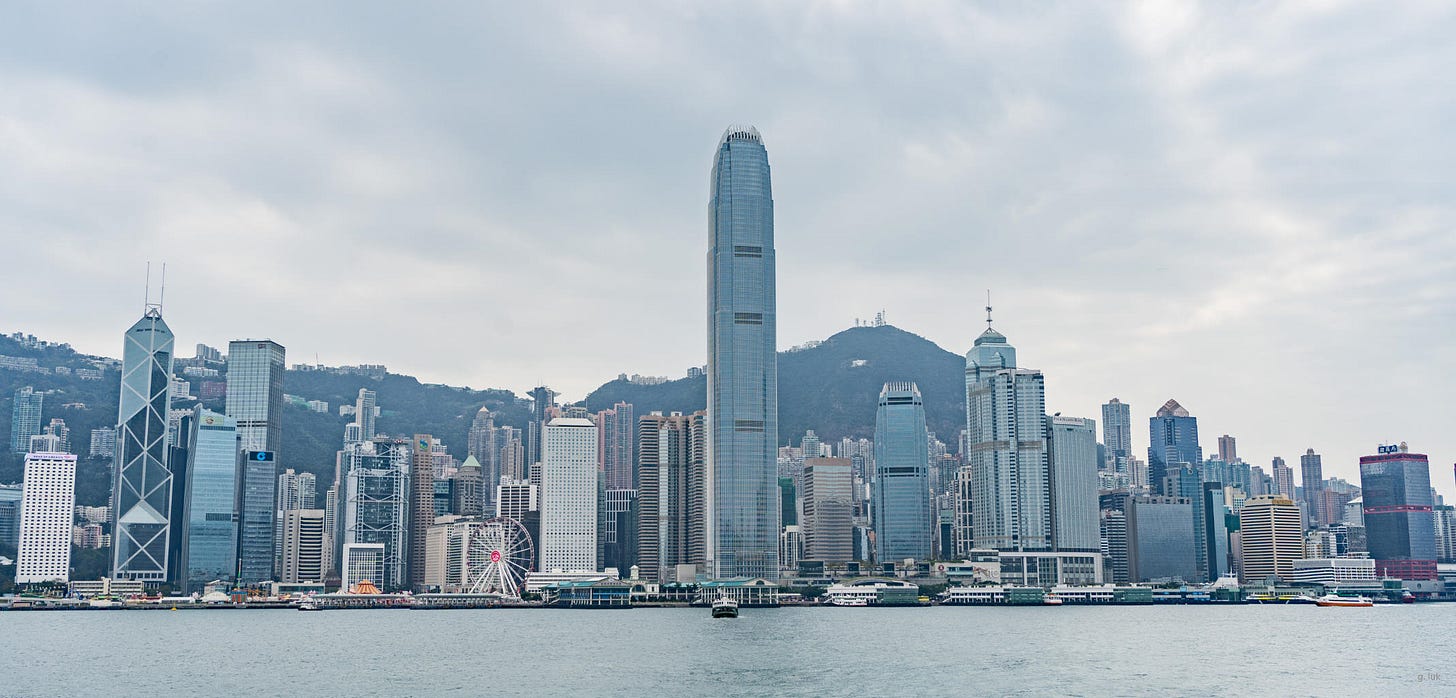Should Hong Kong and Shenzhen merge into one mega-city?
It's less about "should" and more about "when and how"
Absent some catastrophic collapse of China as we know it today, Hong Kong will eventually be merged with the mainland — and quite possibly with Shenzhen as part of some massive Pearl River Delta megalopolis and accorded equal status as a direct-controlled municipality like Beijing, Tianjin, Shanghai and Chongqing today. By extension that means “One country, Two systems” and Hong Kong’s SAR status have limited shelf lives.
Whether or not this should happen is quite irrelevant because preparations for the integration of Hong Kong into mainland China are already happening as we speak. If anything, we are entering the third decade of a multi-decade integration process. The interesting thing about this integration process is that mainland China is the one doing most of the work, because it is the party that needed to play catch up — not just economically but also in the modernization of the various “sub-systems” that govern day-to-day society. By “sub-systems” I am talking about things like the legal system, social security and healthcare systems, tax regimes, public services, etc.
You see, from China’s perspective, the hope/goal was (and continues to be) that by around the middle of the 21st century, it will be a fully developed country with its Tier I cities pretty much on par with Global Tier I cities around the world, including Hong Kong. Being a fully developed country means not only achieving a certain level of economic development, but also developing all of the various “sub-systems” I mentioned above.
Let me give you an example: The legal “sub-system” and the civil code in particular. Hong Kong in 1997 had a fully developed modern legal system that had evolved over decades (starting with a strong base under English common law) to meet the requirements of a modern capitalist system, as evidenced by its status as a global Tier I financial and trading center. Meanwhile, China was still in the relatively early stages of experimenting with modern capitalism and had not even developed a separate civil system to handle things like business disputes.
In fact, it wasn’t until 2009 (!) that China finally passed the Tort Law of the People’s Republic of China. Tort law is an essential part of any modern economy, specifying how to handle situations like medical malpractice, car accidents, business liability etc. And passing the law is just the first step; training lawyers and judges and building a compendium of case law takes many more years, if not decades.
So clearly China was not ready in 1997 (nor is it ready today in 2017) to offer a mature enough legal code that would be able to accommodate the rigorous requirements of international finance and law that Hong Kong needed. But with another couple decades of development, in all likelihood it will be more than ready. The good news is that these sub-systems typically develop alongside the economic development of a country as a rising middle class has more complicated and varied requirements, necessitating things like a modern civil code etc.
Many folks — especially out here in the West — tend to focus on China needing to develop things like freedom of speech, freedom of the press etc. Don’t get me wrong, evolving these areas will ultimately make the integration much easier but lost in the shuffle are all of the other things that matter just as much, if not more. I mean seriously, what has more measurable impact on your life: The freedom to search for “Tiananmen Square” on Baidu or freedom to access a well-functioning national healthcare system and civil code?
Development is not an overnight process. It takes time, countless intermediate steps and tireless coordination of numerous moving pieces. The path is not always straight; there is a lot of trial and error, twists & turns and backtracking along the way. It is hard work that never ends. The “50 year” number was not just a random round number and 2047 was not picked for its auspiciousness — it was based on the very practical consideration that it just might take as much as five decades for China to complete the work of developing the nation to the point where it was ready to integrate Hong Kong with minimal disruption.
So remember that the China you see today is not the China you will see in another three decades. I fully expect that China in 2047 will be ready to integrate Hong Kong such that most people are not even going to think it’s a big deal anymore.
While merging with the mainland at some point is a virtual certainty in my mind, merging with Shenzhen is a separate question. Hong Kong could very well be integrated into the mainland without having to merge (administratively) with Shenzhen. I think there will be a lot of political considerations here. For example, perhaps Shenzhen will need Hong Kong to elevate itself into a Tier I city alongside Beijing and Shanghai. If that’s the case, then there will certainly be a lot of incentive for Shenzhen officials to favor some sort of administrative merger.
I also expect that Shenzhen’s per capita GDP will surpass Hong Kong’s at some point, perhaps as early as 2030. One reason is because I see many challenges for Hong Kong as its core value proposition as a tollbooth into China erodes over time. But I think even more significantly, it is because I am quite bullish on Shenzhen for a plethora of reasons: Shenzhen has the third-largest container port in the world; proximity to the world’s largest industrial cluster; some of China’s most dynamic technology companies (e.g. Tencent); status as a leading financial center, etc.
So don’t be surprised if Hong Kong itself becomes highly motivated in the coming decades to latch itself to this rising star.
This was originally published in Quora in January 2017.

